|
It's often said that neuroscience and psychology are the expression of a brain studying itself. I fancy, then, that the field of ecology takes this self-study to fantastic scales -- from community, to landscape, to biosphere, as it were. Every scientist surely thinks of their field as the most intricate and fundamental, and yet I can't help but wonder: How lucky am I, to be engaged in a science that creates, in me, a small mirror for the Earth herself? To be a piece of the whole dedicated to the greatest act of self-reflection?
+ + + When I was younger, I wanted to be an astronaut. My parents love to tell how, without fail, toddler Maggie would drop everything to stare at the opening credits of Star Trek: The Next Generation. My desire to go to space was aided by a natural proclivity for mathematics, and an eventual degree in the subject. On applying to graduate schools, I wanted to join a field that used the mathematics I loved, rather than studying it directly. Naturally, I first gravitated towards planetary sciences and astrobiology. I thought to finally approach the skies. I spent workdays meant for programming FDA new drug applicant interfaces instead researching astrobiology programs. But as I took my lunch breaks out by the honey locusts and lilypad-filled ponds near my office, I began to realize that I didn't want to spend all of my life behind a computer screen--just most of it. I didn't want to go to space; what I wanted was to be in space, to gain the vantage with which so few have been honored: To observe our home, in full. I wanted to experience Earthrise. I wanted to understand how this extraordinarily unlikely place came to be, and how it persists. The only planet I wanted to study was our own. And so, ecology. I struggled to call myself an ecologist for a long time. I spent years feeling like an interposing mathematician who brought her computational skills to the real ecologists. It wasn't until I went to South Africa and engaged with savanna ecology directly that I realized I had always thought like an ecologist. I just needed time to build up a language and literature background to feel a part of ecological conversations. As I look back on my childhood spent mucking around in the woods, foraging raspberries and spicebush, I wonder how I could have thought I'd be doing anything else. + + + Is the production of conservationists and environmentalists, then, an act of planetary self-preservation? What of the myriad Indigenous ways of relating to our biotic and abiotic siblings, of connecting to the Earth with mutual respect? These ways of knowing go beyond study; they are action, intention. I like the term caretaker. Or perhaps, caregiver. Something in between the two -- someone who knows and sees, but also takes action to protect and nurture. I don't know what exactly I'm getting at here. I suppose, in my life, I hope to be a caretaker/giver, a co-conspirator and conservationist. A piece of the Earth taking care of herself.
0 Comments
It's been a year.
About a year since, on the front steps of an autumnal New Haven porch, my dad called. Your mother has cancer, she has cancer, and I need you here. Come home. Six hours into a ten hour drive, I turned around and headed back, fielding tearful calls from my younger siblings. I only made it to the Bronx. My sweet cousin Elizabeth wrapped me in her arms as I sobbed all night, and the next day she drove me all the way to Virginia. Staring blankly into the unknown of a cancer diagnosis, I couldn't stop thinking, How many weeks do we have left? It's been over a year, and she's still here. It's also been about a year since I made one of the scariest decisions of my professional life. In the winter of my fourth year in graduate school, I was awarded my dream postdoctoral fellowship to study elephants up at Cornell. How could I refuse? But I was nowhere near ready to defend my dissertation, and I knew that saying yes would mean nine grueling months of work that should have spanned the next eighteen. I hadn't planned for my mom to have stage 4 lung cancer, and I hadn't planned to actually get the fellowship, but here we were. I talked it over with friends and family, then decided I couldn't say no. Despite the extreme difficulty to get where I am today, I'm so glad I accepted. 2023 has been quite a year: A year of stress, heartache, and tears -- but also extreme love, community, friendship, and hope. My mother might have died. I almost did as well. But we haven't yet. We are thriving. Blood thinners and targeted immunotherapy are wonderful things. I know this won't last forever, but I often think about where I was last year. We've had about sixty weeks, and I'm hoping for at least sixty more. I've had a year to be thankful to all the friends and family, professionals and admin, kind strangers and mentors who helped me get through the most emotionally strained 12 months of my life. My perspective on life has changed drastically. I know now how precious time is, and I don't intend to waste any that remains. Friends, family, nature--these are the things I want to surround myself with, to pour my energy into. Everything else is just stealing time. Life is short, you only live once, carpe diem. 2023, you've taught me a lot, but you've also been an absolute bitch. Here's hoping 2024 is a little gentler. - Update 19 Dec: Two hours after posting this, I tested positive for covid. 2023 just won't let up, will it? Wow. Just, wow. I can't believe I'm finally (almost) finished with grad school. I really thought that the universe was out to get me for a bit there. What with my mom's lung cancer diagnosis last year, my own near-death experience in the E.R. last month, a family friend passing away suddenly, and the entire city of Durham being without power for two days before my defense, it's kind of a miracle I passed this milestone. I'm so incredibly grateful for everyone who attended my defense talk either in person or online, and especially grateful for my committee for moving their schedules around last minute to accommodate my illness.
The private defense went a lot more smoothly than I thought it would. I had anticipated a lot of nervousness and floundering on my part, but it truly was just a great discussion about my research, where it's strong, and where it needs a little more work during the revisions. Three of my committee members went out of their way to say how impressed they were at the state of my dissertation. Given that I got most of my data only five months ago, and that I spent a lot of time recovering from, well, almost dying, they were shocked that my dissertation was in such a prepared and succinct state. I know that I've worked hard on this, but it was great to hear that validation from my committee that the amount I accomplished is something to be proud of. My advisors did make a point to chat with me about personal ways to continue growth. One big one is my tendency to rely on external deadlines for my motivation. Science is a very self-motivated field, and I have to find a way to push myself without external forcing. That's definitely something I will be working hard on during my postdoc. I'll end with some really inspiring words from one of my advisors, Susan Alberts: “You owe it to yourself to finish these chapters and get them published, but you also owe it to the world. As scientists, we have the privilege to study how the world works and decide our own schedules and time, but with that comes the responsibility of sharing that work with the world. If you haven’t published it, it’s not out there.” Phew. After taking a deep breath and grounding myself in family and rest this past weekend, it's time to get back to work. Onwards!
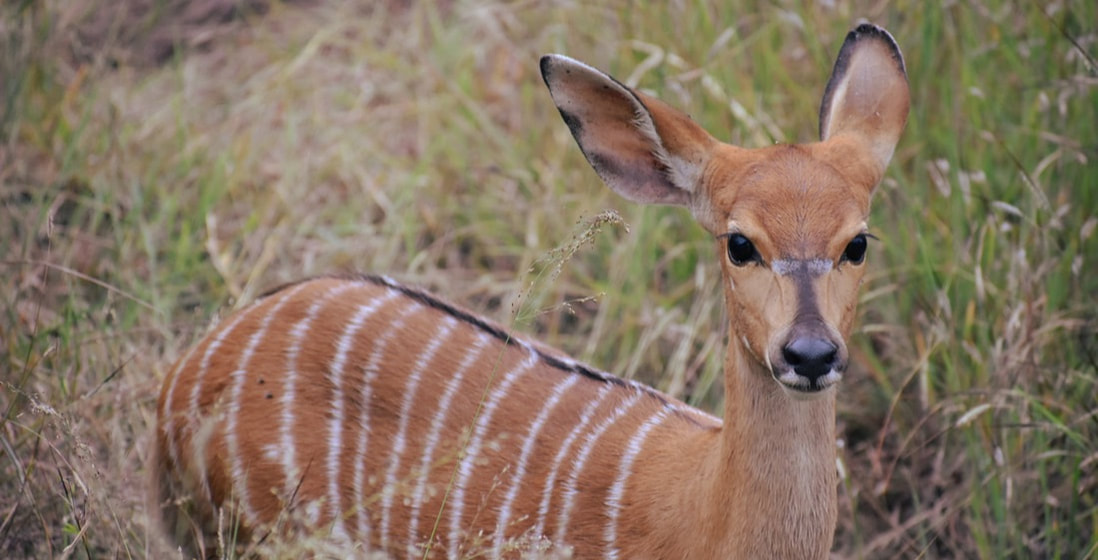
Three weeks ago, the Canadian wildfire smoke rolled into Durham. I took my dog out on a short walk, and after five minutes I felt like I'd just run a mile. Air came in gulps and my heart was pounding. I chalked it up to the smoke, some mild asthma, and again a general out of shape-ness. I bought a HEPA filter and slowly recovered.
For weeks now I've been experiencing acute bouts of shortness of breath, mostly while walking around or going up and down stairs. Generally I was embarrassed and felt out of shape, telling myself I would start exercising more after I finished my PhD on the 26th. Last Sunday, while visiting with family and had another acute breathing episode. Even getting up to walk across the house left me needing to sit down recover. Luckily my mom was able to help me out, but we had no idea that I should have been rushing to the ER. I had a dissertation due in three days. I had a cat to feed. I didn't have time for an emergency. * My dad is a pulmonologist. This is either a stroke of luck or the universe's terrible sense of irony. When I called him on my drive home and described my symptoms, my dad told me to go straight to the emergency room. He wanted to rule out a pulmonary embolism "to make your dad happy". I rolled my eyes, joked I'd only go if he paid the bill, and took the exit to Duke University Hospital. Good thing I still had all my things with me, because I was in for a long stay. I was in the hospital for three days, diagnosed with a bilateral pulmonary embolism---massive blood clots in both lungs. Eventually those clots would have strained my heart so much, I would have keeled over. My dad saved my life. Had I not listened to him or to what my body was telling me, I would likely be dead. * In a quarter of pulmonary embolism cases, the first symptom is sudden death. I'm still reeling from the implications. Physically I'm doing fine; they've got me on blood thinners and I'm home with my cat, still planning on moving to New York soon. Mentally? I feel like my dad pulled me off a train track a second before a steam engine blew by. I'll have to wait a bit for some genetic clotting disorder testing, but the overall consensus is that hormonal birth control contributed to my risk factors and tipped me over the edge into clot territory. * I've postponed my dissertation defense and postdoc start date for now, and hope to jump back into writing this week.
I'm taking a break from writing my dissertation (due in a week!) to do .... some more writing. Sounds like a wild idea but I wanted to get down on "paper" how my fast-track dissertation has been going so far.
I've written over sixty pages of text in the past three weeks, churned out dozens of figures and tables, and, okay, so I've spent a few hours watering my crops and slaying monsters in Stardew Valley, too. Nobody's perfect, and sometimes a girl needs a break. I've got a week left until this document is due to the Graduate School, and you know what? I think I'm gonna make it. I am starting to see the light on the other side. * Yesterday I took one of my rare trips outside my house to go to the store. I grabbed a half-gallon of milk and checked the label. July 26. The date of my defense. I couldn't believe it. After all this time, it's almost over. Y'all, we're officially in milk territory now. * I've learned a lot about myself already. I've learned that I do my best work around 11pm. I hate that this is true, but it is, and I've got to embrace it. I've learned that I can't tie my self worth to how I write. I have to send drafts to my advisors, and they are GOING to find issues. At first it was paralyzing, but this is the only way to get better. I keep thinking back to an early segment of The Daily Show in Trevor Noah's run, where he says something along the lines of "Look, I'm not as good as Jon Stewart. If I were as good a host at the beginning as Jon Stewart was at the end of his career, I think that would be doing a disservice to Jon's talent." I can't find the clip, but the memory has stuck with me. I can't expect to write as well as the papers I read now, at the beginning of my scientific career. Do I think I can just jump into scientific writing and immediately be better than everyone else? If I did, that would be pretty arrogant of me, huh? So why not cut myself some slack? There will be flaws, and I'll fix them, and I'll get better. * Some parting mantras for myself:
TTFN. See you on the other side. I finally returned to the Kruger Park this past March! How lucky I am to do work with such amazing scientists and staff there, in such an incredible landscape filled with animals I never thought I'd get to see. And folks, it pays to hang out with botanists: While admiring a particularly hardy and beautiful Terminalia sericea, one of my favorite savanna trees, I encountered my first ever chameleon in the wild. What a beauty that I never would have noticed had we not stopped to smell the roses -- uh, I mean, the silver cluster-leaf!
This trip to Kruger was much too short, but I managed to cram in a workshop, a conference, and a field course of Duke Master's students led by one of my advisors, Jim Clark. It was amazing to watch myself jump between these three professional modes (workshop leader, networker/presenter, and teacher); I think even a year ago I wouldn't have had the stamina for it. Savanna Soils Workshop The first few days of my trip were spent facilitating a workshop brought together by Laurence Kruger and Norman Owen-Smith, with co-runners Emily Wedel and Arjun Potter. It was a lot of work, but what an incredible gift to have spent so much time with a small group of savanna scientists whose work I have admired for years. I learned a lot during those few days, about savannas, scientific careers, and especially how to balance so many different personalities, ideas, and relationships. Some workshop takeaways:
Savanna Science Network Meeting After the workshop was the 20th annual Savanna Science Network Meeting, where savanna scientists from across the globe gather to share their science and network with each other. The week was filled with so many interesting presentations, great conversations, and new friends made. Words can't describe how amazing it was to realize that I am embedded in a community of kind, intelligent, multi-faceted scientists who all want to share ideas and beers and watch the sun set together. If I take anything away from this week, it's (1) I should be more confident in my science; everyone loved my talk (see video recording here), and (2) I can't wait to come back next year! Duke Field Course What can I say? I love teaching. I had an absolute blast interacting with the Master's students, showing them the wonders of the savanna and experiencing new discoveries with them. I even had fun spending hours gluing fluorescent strings to dried marula seeds. I need to remember the joy I feel in teaching when I consider my career. PS - Read the students' blog here! - I also learned through these three experiences that I have become a much more resilient person since my last trip to Kruger. Criticism, conflict, and differences of opinion really don't shake me as much as they used to; whether this is through exposure therapy or a genuine increase in my confidence as a scientist is still up for debate, but I think it's a little of both. After the positive response from the community to the Decolonizing Ecology seminar given by Dr. Madhusudan Katti in the spring, I organized the department to bring Dr. Katti in for a half-day weekend workshop on decolonizing ecology. With the help of Dr. Katti, Dr. Nicki Cagle (Assoc. Dean of DEI at the NSOE) and the lovely folks at the Forest History Society and Makus Empanadas, the Decolonizing Ecology workshop was finally held on December 3, with over 30 participants! I was incredibly thrilled to see such a response and follow-through from our ecological community. We held the workshop on location at the beautiful Forest History Society, but organizing the hybrid Zoom format was a unique challenge (I think it worked out okay; I'd rate our implementation at a solid B)
Decolonization is the active practice of "undoing [colonial] systems and ways of thinking" (Trisos et al 2021). Decolonization is not a metaphor or a stand-in for other diversity, equity, and inclusion work (Tuck & Yang 2012); it specifically centers on acknowledging and dismantling the history, present, and future of settler colonialism in our own scientific work. This workshop was centered around ecological research, and entailed (1) an overview lecture by Dr Katti about the tenets of decoloniality in research, (2) jigsaw-style breakout sessions in which attendees will discuss these tenets & challenges, and how they connect to individual research, and (3) a final discussion and debrief. I'm really excited to see where this workshop takes us as a community. I know it is not the last step for us towards decolonizing our ecology, but it's a great next step. Hopefully we can host more of these events in the future to get more people thinking about decolonization. Read more about my decolonization thoughts here. Phew, am I worn out! It's been quite a week, with THREE different types of science communication speaking events on my schedule. It's been so much fun, but for an introvert like me it's been a lot of face time. I'm glad to just veg for a bit after this.
Thursday: GradX On Thursday last week, I participated in an event through the Graduate School called "GradX". I prepared a five minute TED-style talk about my research for a broad audience, something I haven't done before. I was a bit nervous since I knew I wouldn't really be able to look at notes, but boy was it a fun time! I really enjoyed the opportunity to craft my research, which is very heavy on coding and remote sensing, into a five-minute talk that my family and friends would enjoy. The recording is here (apologies in advance for the poor audio quality and video angle), and a transcript can be found here. Saturday: People & Nature Saturday was the big day: A few colleagues (Anita Simha, Jon Choi, Lane Scher) and I collaborated to put on an all-day symposium for our department called People & Nature, which had originally been slated to take place in March of 2020 (shout-out to Brandie Quarles and Alex Loomis, who did a lot of the planning in 2020!). You can read more at the webpage, but in essence the symposium was about how people and nature interact, with three focuses: Ethnoecology, Place-Based Research, and Environmental Justice. We asked speakers to consider the following questions, and I think they're worthy of sharing here as well:
Tuesday: Skype a Scientist Finally, Tuesday I was delighted to be invited to video call with a kindergarten classroom in Farmville, VA, through a program called Skype a Scientist. It was SO MUCH FUN! I love teaching kids about science, and of course they loved that a lot of my presentation was about poop. I showed lots of pictures of the cool animals and plants that I encountered in South Africa, and asked them questions like "If you were a plant, how would you keep animals from eating your leaves? How would you convince them to eat your seeds?". The poop came in when we discussed the role that frugivores play in spreading seeds far and wide, and we got to play a guessing game with a marula seed I brought from South Africa. Last but not least, we did a bit of show and tell with two snakes that I am pet-sitting, Porkchop and Ghost. The kids went absolutely bananas for them, and really made me wish we could have been in person. Still, what an awesome opportunity, and I'm SO excited to get matched again. When I stepped off the plane in Dulles, VA back in November, the icy breeze came as a huge shock. This is figurative, of course. My plane had one of those hallway things attached to it, and I didn't get my first taste of the Virginia fall air until my parents picked me up at the Arrivals terminal an hour later. Still, it was a shock---only three days before, I had been enjoying the onset of the hot wet season in Kruger, braving 100-degree days (38-degree, for my Celsius-minded friends) to help Kruger researchers set up soil probes, speaker systems, and trail cameras. Even now, a month out from my return, I still expect to step outside into a blast of heat.
As any ecologist will tell you, the return from the field comes with its own culture shock and dreamlike reflections. I won't try to cover everything in just one post, but instead focus each snippet on one thing that I learned about myself during the course of my month-and-a-half in Kruger. Today's theme: What does it mean to be an ecologist? Or, rather, what does it mean to me? My PhD journey so far has been marked by my struggles to answer this question. As a mathematician and computer programmer, I mostly defined myself by what I could do, and my mental flexibility to find elegant solutions to computational problems. It has taken me a long while to rediscover a meaning behind my title; in fact, it took me over two years to become comfortable with calling myself an "ecologist". Being at Kruger, though, has finally settled this piece of me. I've learned that being an ecologist is not about what you know, but how you approach the world. It means asking questions about the workings of things, pondering the larger cycles and considering both the past and the future of a system with equal weight. It is a special state of mind, an exciting realization that I get to study how this planet works, on every level, for the rest of my life. No matter what I do in my future, I have finally discovered my "ecologist brain"---a brain that can chew on small and large processes, long and short time spans, all at once---hiding in plain sight all along. It's finally happening!
If you'd asked me even a month ago whether I'd have a chance to visit the Kruger National Park this fall, I'd have thought you were pulling my leg. And yet, somehow, I was able to get my paperwork and vaccines together, book flights, and get ready to embark on my first-ever international research trip. I'm incredibly excited to have the chance to go and meet my PhD research goals, especially during a global pandemic. COVID-19 has done a number on my academic plans, my motivation, and my mental health, so this opportunity is a welcome break from long-term pandemic stress and anxiety. I'll be on site for about a month, taking a course on savanna ecology field skills and helping set up a research site on drought effects on savanna vegetation. I'm looking at the course schedule now and just can't believe my eyes---hands-on field work mixed with lectures and other activities? Plans to go out in the field almost every day? A chance to meet all these awesome researchers that I have only been Zoom-ing with so far? It's an absolute dream. Look forward to more pictures and research thoughts to come. In recent weeks I really have been hitting my stride after a major overhaul of my study techniques and a fresh dollop of academic motivation, and I'm truly grateful and excited that I'll get to see this place in action and meet with collaborators for the first time. For a long while I've been doubting whether I really can make it in academia, and this trip is coming at just the right time to help me figure this out. Oh, and of course, a month at a world-class research station on an African savanna will be incredibly awesome. There's that, too. *** This research funding comes in part from Duke University's Data Expeditions fellowship I earned for my work on eBird data with co-author Lane Scher. I am incredibly grateful for the team at Kruger for the opportunity to take this course, and to my Graduate Research Fellowship support from the NSF (see previous blog post). I also note here that all research and travel will be taking place with strict masking and COVID-19 sanitation guidelines, and that I have followed Duke University's vaccination and weekly surveillance testing protocol. Taking an international trip during a pandemic is not something I do lightly. |
like it says on the tin. Categories
All
Archives
May 2024
|

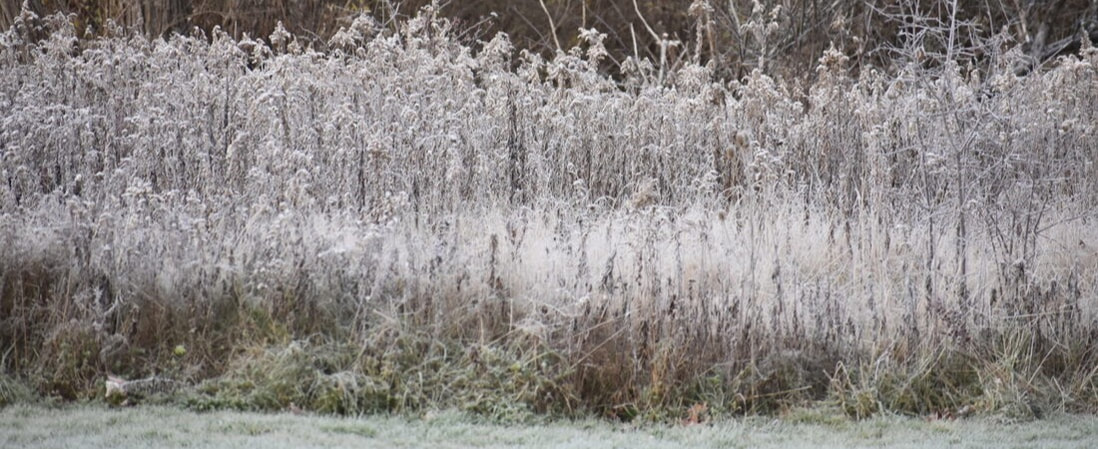
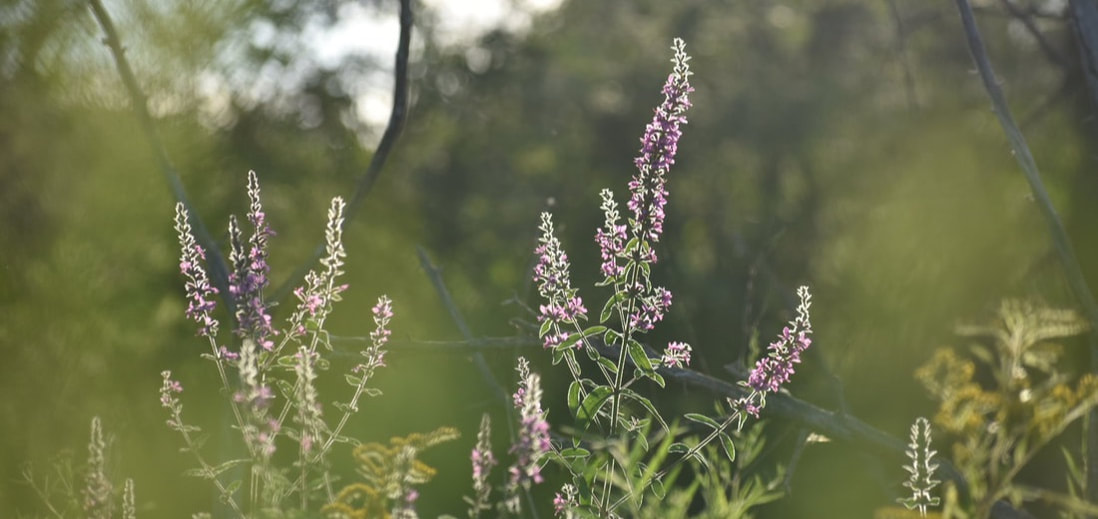

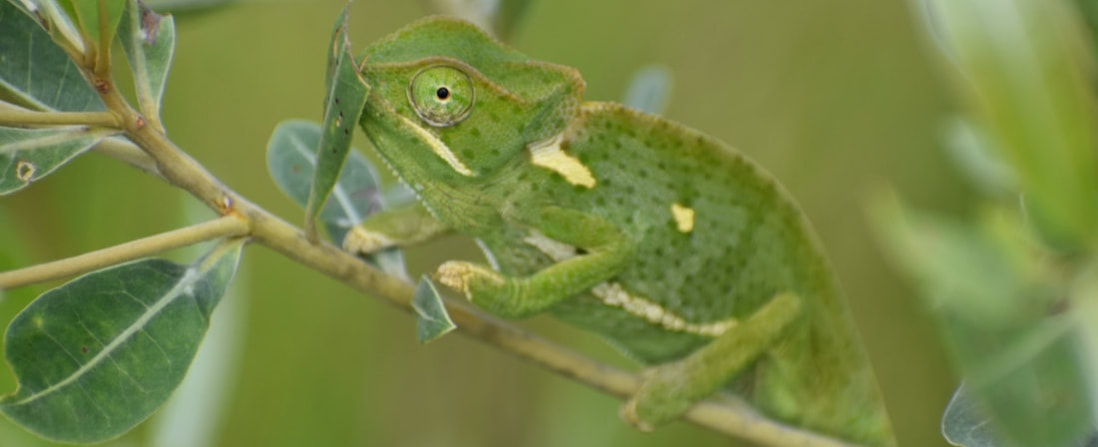
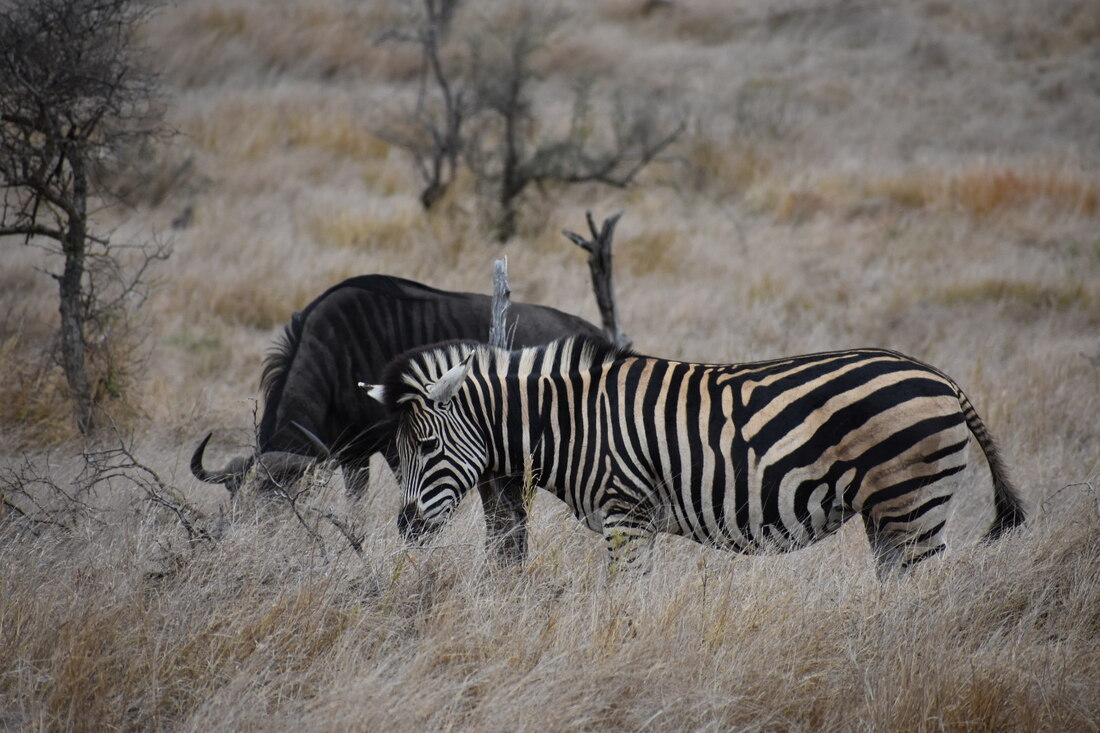
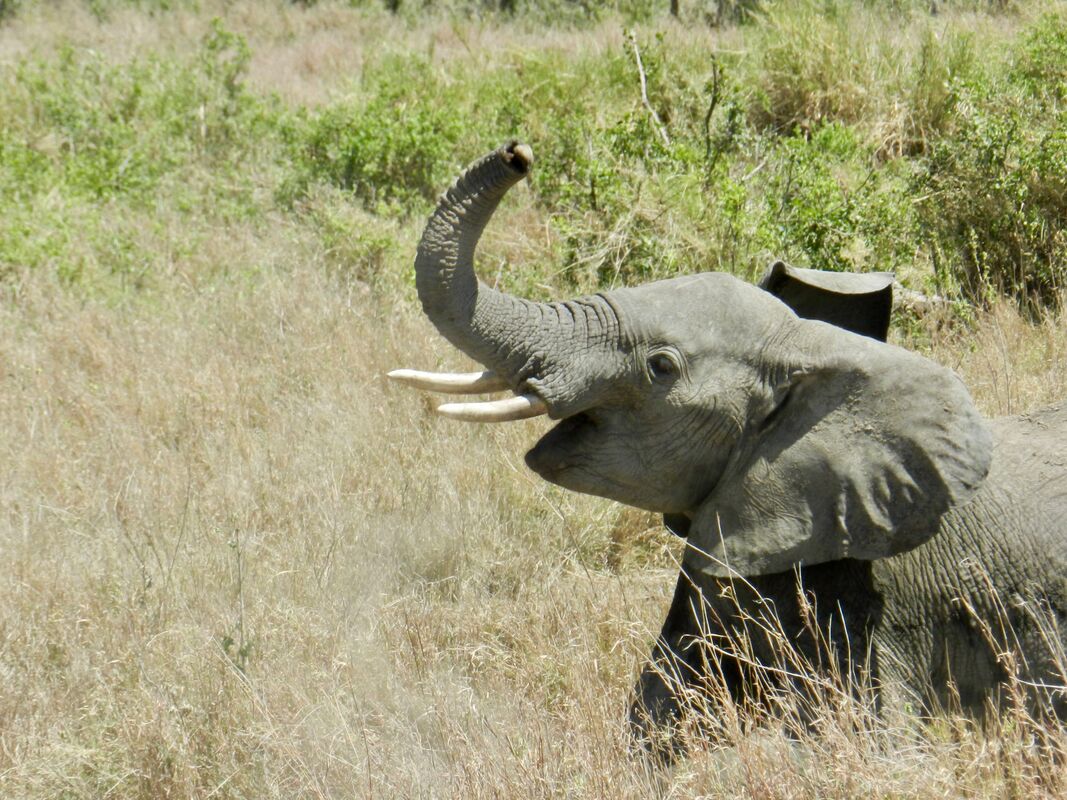
 RSS Feed
RSS Feed